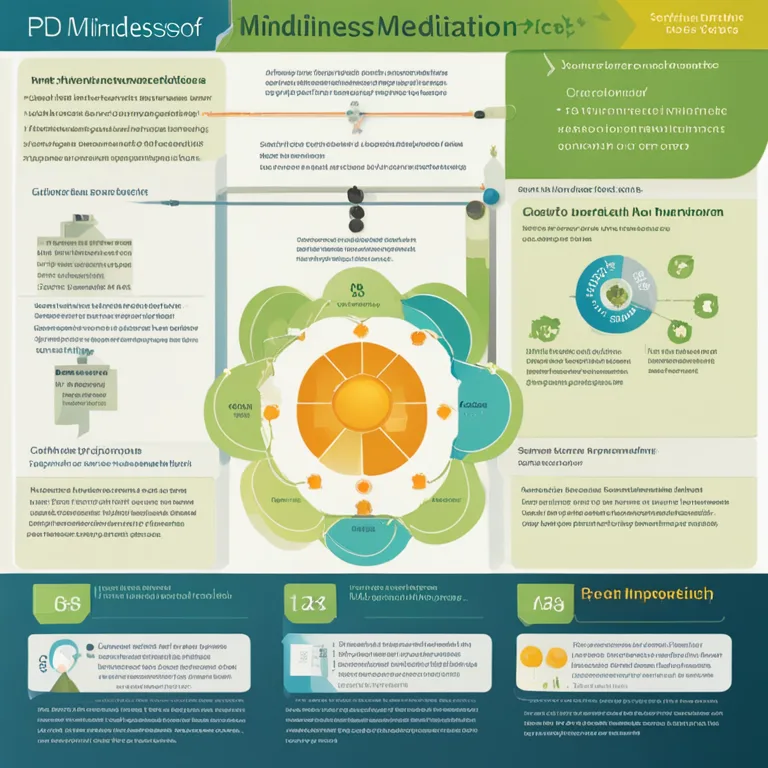
Mindfulness Meditation for Parkinson's Management
Discover how mindfulness meditation can aid those living with Parkinson's disease in managing symptoms and improving quality of life.
article by Hina Kurosawa
The Role of Mindfulness in Parkinson's Disease
With the rise of complementary therapies in managing chronic conditions, mindfulness meditation emerges as a promising practice for individuals affected by Parkinson's disease (PD). As a neurological disorder that impairs movement and can lead to cognitive challenges, PD often reduces patients' quality of life. However, mindfulness meditation offers a non-pharmacological approach to mitigate some of the stress and anxiety associated with the disease. By focusing on the present moment and fostering a non-judgmental awareness of one's physical state and surroundings, patients may cultivate greater resilience and a sense of calm amid their daily challenges.

Meditation's Impact on Motor and Non-Motor Symptoms
Research indicates that regular mindfulness practice can have a positive impact on both motor and non-motor symptoms of PD. Tremors, rigidity, and bradykinesia are hallmark motor symptoms that can be navigated more effectively through improved mental focus and body awareness. Equally important, mindfulness can alleviate non-motor symptoms including depression, sleep disturbances, and cognitive impairment. The holistic benefits of meditation can thus contribute to a more balanced and manageable experience for those living with Parkinson's.

Starting a Mindfulness Meditation Routine
For newcomers, initiating a mindfulness meditation routine might seem daunting. However, the key is in simplicity and gradual progression. Begin with short, daily sessions focusing on breath awareness or guided imagery, progressively increasing duration as comfort with the practice develops. The use of apps or local meditation groups can provide structure and support, especially important for those with PD who might face additional barriers to starting and maintaining a regular practice.

Evidence-Backed Benefits
Scientific studies as of 2024 continue to underscore the neuroprotective properties of mindfulness meditation. MRI scans reveal that regular practitioners have increased grey matter density in regions of the brain related to memory, executive function, and emotion regulation — areas commonly affected by PD. Moreover, the stress-reducing effects of mindfulness can lower levels of cortisol, potentially slowing the progression of neurodegenerative changes characteristic of Parkinson's disease.

Incorporating Mindfulness into Daily Life
Beyond formal meditation sessions, mindfulness can be woven into everyday activities. This integration facilitates continuous relief from the psychological burden of PD. Mindful walking, eating, and even speaking are practices that keep individuals grounded, potentially easing the symptom burden throughout the day. Hence, mindfulness offers a tool that is adaptable, versatile, and readily accessible.
Consulting Health Professionals
While mindfulness meditation has demonstrated benefits, it is important to consult healthcare professionals when incorporating it into a treatment plan. Neurologists and therapists familiar with PD can guide how to tailor meditation practices to individual needs and circumstances, ensuring that meditation is part of a comprehensive approach to managing the disease.
Looking Ahead
As we continue to understand the complexities of Parkinson's disease, mindfulness meditation stands out as a valuable ally in enhancing patient care. Its applications and outcomes will likely become more defined and supported by a growing body of research in the coming years. Embracing mindfulness is to embrace a proactive stance against the challenges of PD, fostering a better quality of life for those affected.
Published: 1/8/2024
Modified: 1/8/2024
More predictions
Come back here soon to learn more about yourself and your future


The Harmonious Trio: Meditation, Mindfulness & Breathwork
Embark on a journey to inner peace with our guide on integrating meditation, mindfulness, and breathwork into your daily life.


Mindfulness Meditation Benefits for High Schoolers
Discover how mindfulness meditation can help high school students navigate academic pressure, enhance focus, and improve overall wellbeing.


Harmony in Meditation: Fostering Mindfulness and Balance
Discover the art of achieving inner tranquility and equilibrium through mindful meditation practices.